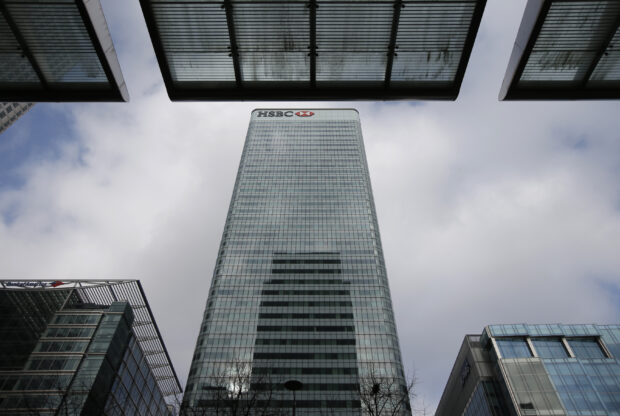HSBC dumps London tower for smaller office as real estate reckoning unfolds

The HSBC headquarters is seen in the Canary Wharf financial district in east London Feb 15, 2015. REUTERS/Peter Nicholls/File photo
LONDON – HSBC’s move to ditch its 45-floor Canary Wharf tower in favor of a much smaller development in central London is one of the most visible examples yet of an office downsizing trend that’s rocking commercial real estate markets globally.
Europe’s largest bank told staff on Monday that it planned to quit the skyscraper that bears its name in the east London financial district and move some 8,000 workers to a redeveloped office complex overlooking St Paul’s Cathedral.
A recent spate of downsizing moves by major employers comes as landlords and real estate developers already face a crunch from soaring financing costs, adding to pressure on the sector.
Companies globally are ditching large office buildings at an unprecedented rate as home working takes hold after the COVID-19 pandemic and as businesses opt for greener offices to meet testing sustainability targets.
It’s a trend that’s already challenging the business models of large office landlords and has the potential to reshape cities, property analysts and experts say.
“Home working has shrunk the amount of space [HSBC] need. That won’t be unique to them,” said Tony Travers, director of the London School of Economics’ London research group.
London’s traditional financial hub the City of London and Canary Wharf have competed for company headquarters since the 1980s, but competitive rents may lure companies that had previously balked at the cost back to city centers, Travers added.
Around half of the world’s largest employers plan to reduce office space in the next three years, typically by 10 percent to 20 percent, a survey by property agent Knight Frank last month found.
The ripple effects of so many companies slashing office space has significantly impacted wider markets.
Real estate came top of an index of Europe’s most distressed sectors for the first quarter of 2023, according to data compiled by law firm Weil Gotshal & Manges, driven by a squeeze on valuations, liquidity and investment.
Sweden in particular has been under the spotlight, given the high exposure its households and investors have to the real estate market. High debts, rising interest rates and a wilting economy have produced a toxic cocktail for local commercial property companies, with several cut to junk by rating agencies.
The other major factor prompting office moves is the ticking clock of green targets set by many companies under pressure from investors, environmentalists and regulators.
“For large businesses, the operational model has to change and the companies need to stand alongside – as far as they are able – the pursuit of green policies,” said Gerardine Davies, co-founder of investor Perenna Capital Management.
‘Genie out of the bottle’
HSBC for its part has one of the most aggressive targets to cut office space among major employers, with a commitment to axe around 40 percent globally.
The bank intends to move its headquarters to the revamped former offices of telecoms giant BT in late 2026.
The so-called Panorama St Paul’s development has 556,000 square foot of space, according to the project’s website, around half the size of the 1.1 million sq ft tower HSBC leaves behind.
BT itself relocated to a new smaller headquarters in nearby Aldgate in the City in 2021, which houses around 3,500 people and includes more flexible spaces for hybrid workers.
HSBC’s move comes at an awkward time for Canary Wharf, when Swiss bank Credit Suisse’s long-running presence in the Docklands estate is also uncertain after its emergency takeover by UBS, which plans to axe thousands of jobs.
The City of London Corporation, which runs the Square Mile financial district, was quick to trumpet HSBC’s shift on Monday, calling it a “huge vote of confidence for the City”. Canary Wharf Group, the Docklands commercial landlord, declined to comment.
Canary Wharf Group has been trying to adapt to the times by diversifying away from its core area of strength of financial sector occupiers by developing a giant life sciences campus and building more flats, restaurants and bars.
Credit rating agency Moody’s nonetheless downgraded the landlord’s ratings in May due to the tough outlook for the real estate sector.
One of the Canary Wharf estate’s newer developments, the YY building – a recently completed redevelopment of Thomson Reuters’ former headquarters opposite Canary Wharf station – remains vacant, Bloomberg has reported. Property agents for YY did not respond to a Reuters request for comment.
“The genie is out of the bottle,” said Andrew Mawson, founder of consultancy Advanced Workplace Associates. “Employees aren’t coming back to the office in the way that they used to.”